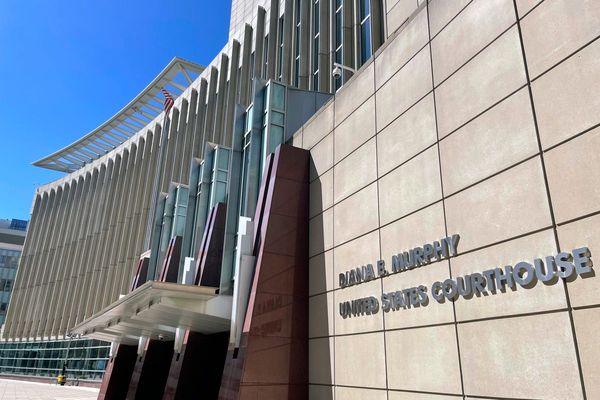Billions of dollars have been raked in by the state’s marijuana industry since recreational weed was legalized in Illinois two years ago.
Yet, so far, none of that bonanza has reached past the major growers and suppliers to small-business applicants for the “social equity“ program that had been one of the legalization movement’s biggest selling points.
While the large-scale growers, processors and distributors of legal cannabis thrive, the law’s social equity program — designed to give a boost to individuals and communities that need an infusion of free-market enterprise the most — still struggles to get off the ground.
What happened? Blame a string of lawsuits, as well as the COVID-19 pandemic, along with a variety of other hurdles and disputes holding up the program.
After the state awarded 40 growing licenses last summer, a year later than mandated by the 2019 law, the law and its criteria for choosing licensees were hit with a succession of lawsuits, mostly from unsuccessful applicants who charged inconsistencies in the scoring system used to determine which applicants would be awarded licenses.
The first litigation came in 2020 when officials discovered their first list of winners of licenses to sell recreational marijuana contained no people of color. That’s a no-no under the diversity goals set by state legislators.
Yet one constant in the new legalization era is the predominance of large companies in control of the Illinois marijuana business. The state’s cannabis industry continues to be dominated by 21 growing operations which the state licensed back in the days when only medical marijuana was legal.
Illinois lawmakers expanded legalization from medicinal to recreational use, saying they wanted to diversify the industry, which was dominated by whites. They would do this by awarding a bonus to “social equity applicants” who had been nabbed in low-level cannabis arrests or lived in areas most affected by the war on drugs.
That sounded like a good idea. But the complicated and costly application scoring process ended up last year with just 21 of 937 applicants qualifying for the initial lottery to get one of the 75 licenses for the retail outlets known as dispensaries.
After howls of protest and lawsuits pointing out that many applicants had wealthy or connected white investors, officials added 110 more licenses and two more lotteries to expand the pool of qualifying applicants.
Meanwhile, applicants for Illinois’ new “craft grow” licenses, sought by small-scale growers who produce the specialty “craft” weed and edibles, have been going broke while trying to maintain their facilities — and hired experts for the pot businesses they still hope to operate as soon as the state licenses them.
Their hopes took a big step in the right direction March 14 when the state won a court order to award 60 new craft cannabis growing licenses in Illinois, lifting an earlier injunction.
In a ruling that craft growers hailed as a major victory, Sangamon County Judge Gail Noll restored the applications of 11 who had sued the state after receiving rejections from the Illinois Department of Agriculture, which administers marijuana licenses.
The agency may now reconsider those applications, and is expected to rank all applicants to see who qualifies for a license. In case of a tie among top scorers, the department would hold a lottery to determine the winners.
That’s an important victory for practical governance, too, a giant step away from the irrational criminalization that has cost especially Black Americans dearly and could have been avoided by sensible regulation.
Unfortunately, an even larger hurdle remains on the industry’s retail side. While craft grower “infuser " (introducing cannabis into other edibles) and transporter licenses were issued this summer, Cook County Judge Moshe Jacobius has ordered all 185 dispensary licenses held up indefinitely while he decides the fate of a stack of lawsuits by a few firms that are challenging the fairness and constitutionality of the process.
Which, once again, leaves the industry and countless potential consumers wondering when they’ll be able to see craft weed in Illinois.
Now some of the social equity applicants say they have burned through hundreds of thousands of dollars as they slog through a process that was designed to give them a break. In practice, it did the opposite.
Craft growers have suggested that the key to helping minority investors survive might be to immediately widen their allowed growing space from 5,000 square feet to at least 14,000 square feet.
Such an expansion of their allowed “canopy space,” as Scott Redman, president of the Illinois Independent Craft Growers Association, explained to us, would make their businesses more attractive for financing when competing against existing growers, whose space can go up to 210,000 square feet.
In other words, the worthy aims of “social equity” marijuana licensing might be saved by the mere loosening of the heavy hand of government that made the licensing possible.







